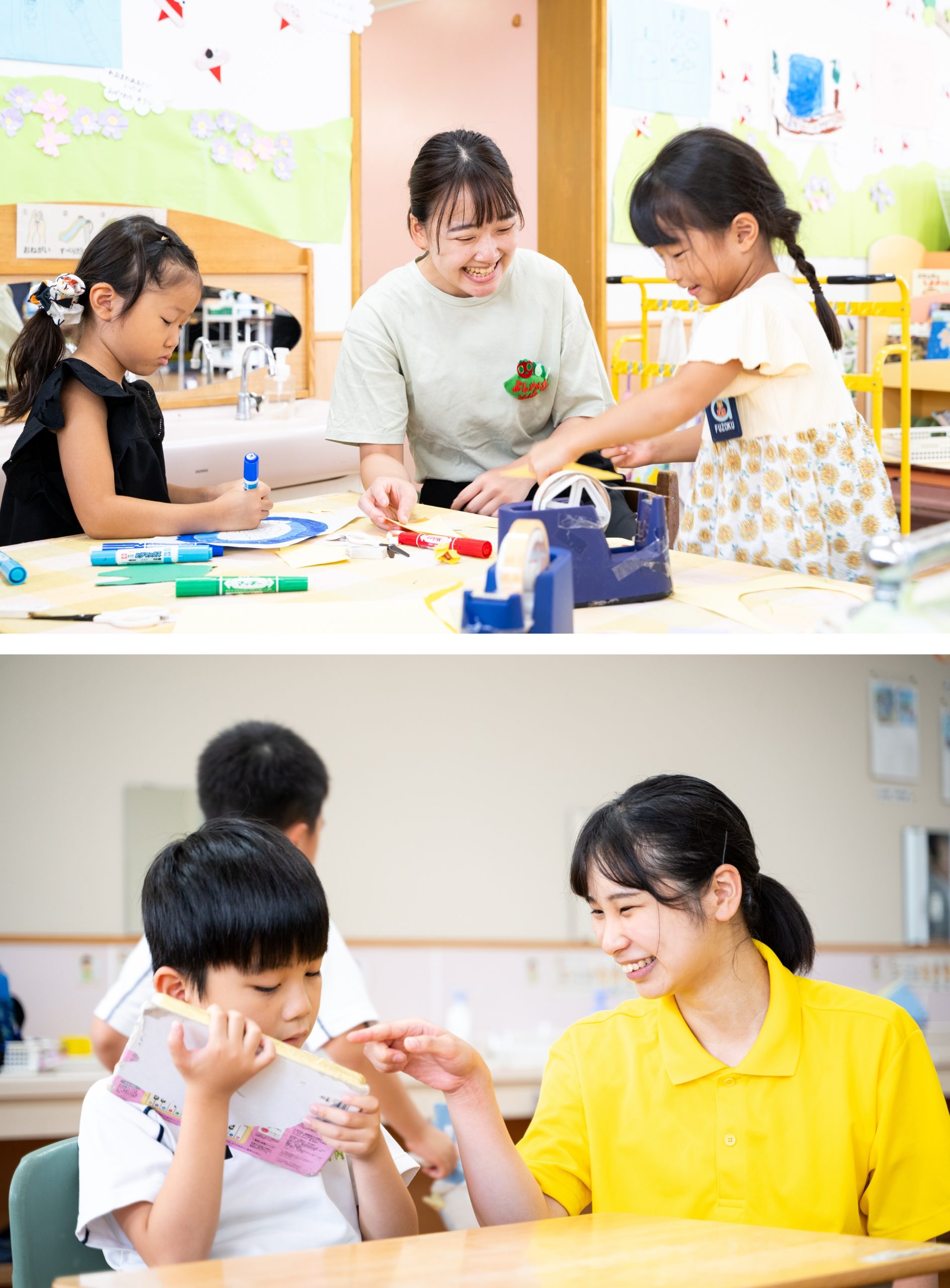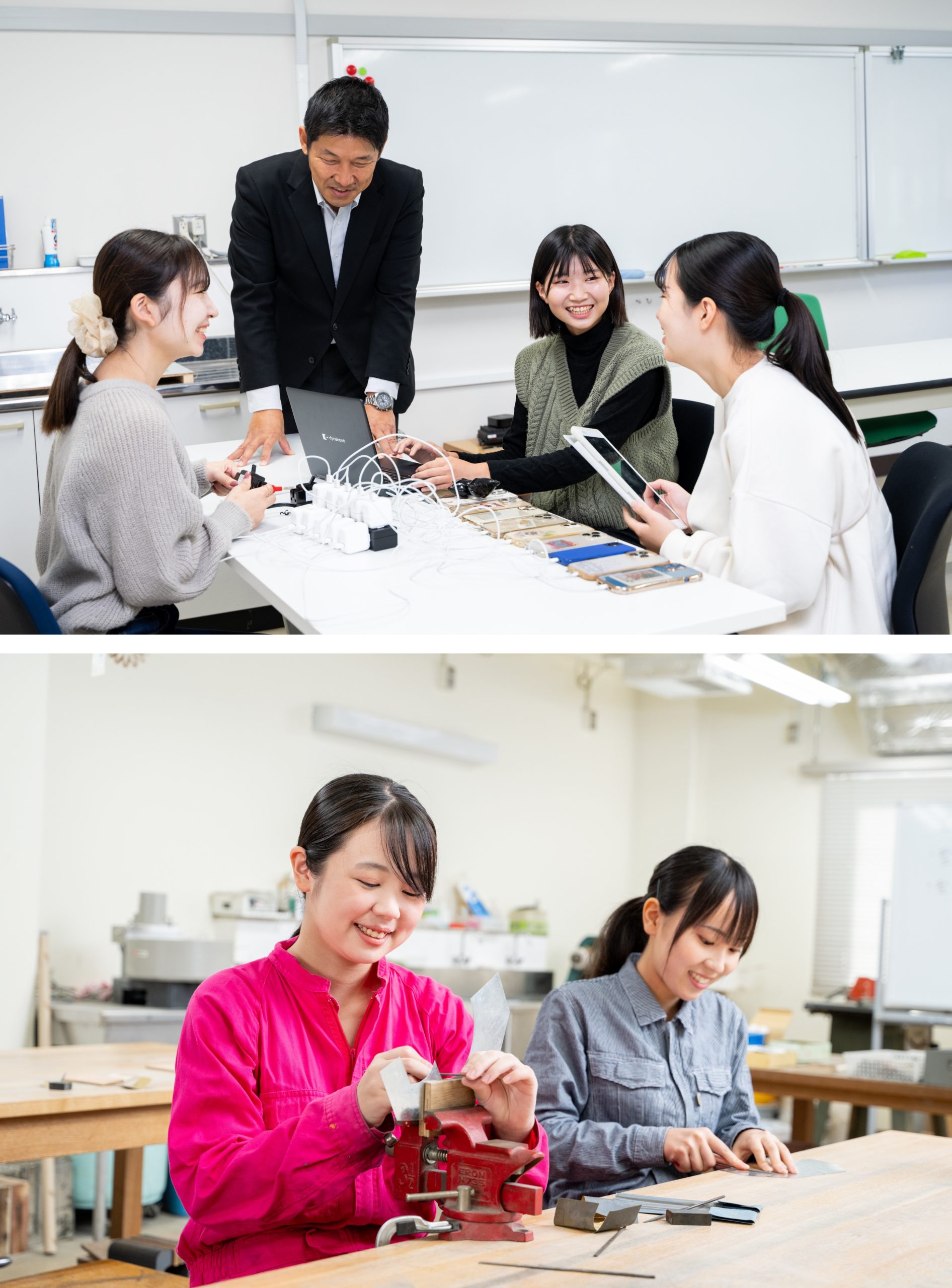department of education
Enhancing Human Potential and Creating the Future of Education
The School of Education consists of two School Teacher Training Courses: the Practical Course of Educational Development and the Elementary and Secondary Subjects Course. Through a well-developed curriculum that combines theory with a variety of practical training at affiliated schools and local schools, we train school teachers who have both a rich sense of humanity and excellent practical leadership skills.

School Teacher Training Course
Practical Course of Educational Development
The Educational Development Practice Course consists of three subcourses: the Early Childhood Education Subcourse, the Elementary Education Subcourse, and the Special Support Education Subcourse.
In the Early Childhood Education sub-course, the curriculum emphasizes in-depth knowledge of human growth and development as well as practical skills, and through abundant hands-on experience, the program cultivates leaders who will pioneer contemporary issues in early childhood education, such as the integration of preschool and kindergarten.
The elementary education subcourse offers a wide range of studies necessary for teachers, with a focus on pedagogy and educational psychology, and gains experience through extensive practical training to develop teachers who can deal with these issues.
In the Special Needs Education Subcourse, students learn theory and practice in a well-balanced manner through classes taught by faculty members in a variety of specialized fields such as pedagogy, medicine, and psychology, extensive practical training, and collaboration with affiliated institutions and local communities, aiming to become teachers who can contribute from the perspective of special needs education toward the realization of a symbiotic society.

Elementary and Secondary Subject Courses
The Elementary and Secondary Subjects Course consists of three subcourses: Language and Social Education Subcourse, Science Education Subcourse, and Life, Health, and Art Education Subcourse.
In the Language and Social Studies Education subcourse, students acquire specialized knowledge and skills in Japanese, social studies, and foreign languages (English), and the curriculum is designed to provide students with a foundation of skills that will enable them to continue learning even after they become teachers at schools.
In the Science Education subcourse, the curriculum is designed to enable students to learn the expertise, systematics, and relevance of the subject matter while setting a broad agenda related to the subjects of math and arithmetic, science, and technology.
The Life, Health, and Art Education subcourse consists of four subject areas : home economics, physical and health education, music, and arts and crafts. In each subject area, the curriculum is designed to help students acquire specialized knowledge and skills as well as cultivate practical skills to live richly as human beings.
Furthermore, through a well-developed curriculum that combines theory with a variety of practical training at affiliated schools and local schools, we aim to nurture school teachers with a rich sense of humanity and excellent practical leadership skills.

Special Education Course
Education for children with special needs is undergoing major changes toward the realization of a symbiotic society where everyone respects and supports each other’s personality and individuality, and where the diversity of people’s ways of being is mutually recognized. The establishment of an inclusive education system, a system in which students with and without disabilities learn together in the same place, is the foundation for such a system.
The Special Education Course aims to train highly specialized personnel with a broad knowledge base who are able to understand the educational needs of each child and provide appropriate guidance and necessary support.
By obtaining a first-class elementary school teacher’s license and a first-class special needs school teacher’s license in four areas (hearing impaired, mentally handicapped, physically handicapped, and infirm), students acquire the knowledge and skills to be active in various learning environments with continuity, such as special needs schools, special needs classes, instruction through day classes, and regular classes. The students acquire the knowledge and skills to be able to work in various learning environments such as special-needs schools, special-needs classes, classroom instruction, and regular classes.



